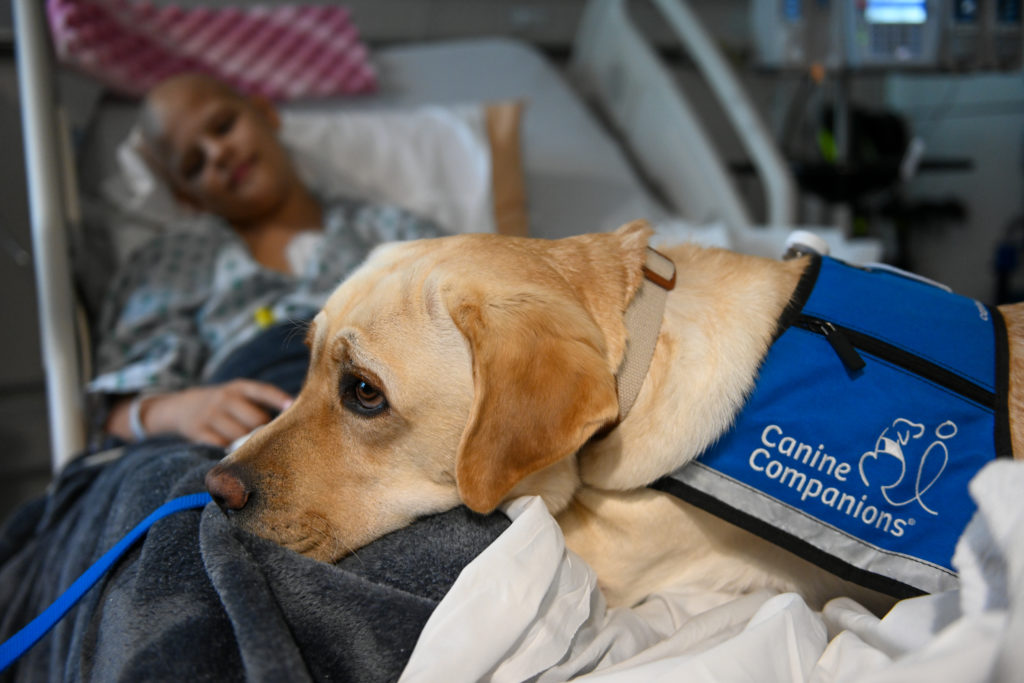Meet Lois, CHOC’s first resident dog and badge-carrying member of the Child Life Department.
Lois underwent a comprehensive two-year training program and knows over 40 commands. Chloe Krikac, her handler and CHOC child life specialist, participated in an intensive two-week training program herself. Lois lives with Chloe and accompanies her handler to work.
Unlike pet therapy animals brought to a hospital by volunteers, resident service dogs like Lois are highly trained to be a vital part of therapeutic treatment.
Lois helps normalize the hospital experience by making it feel more like home. She also helps patients achieve their medical goals—one wag at a time. Plus, Lois offers a fun distraction during a procedure or painful moment. And this delightful bundle of fur lends a sense of unconditional love and acceptance.
Fourteen-year-old Aviva, for instance, had overdosed and was waiting to be placed in our Mental Health Inpatient Center. Reserved, quiet, and suffering from a bad headache, Aviva wasn’t saying much.
Then Lois came in, hopped on the bed and laid down. Her presence opened the door for Aviva to talk about her own dogs. This led to her talking about a lack of support at school and how much she missed her friends. Through it all, Aviva stroked Lois’ soft fur and smiled.
When Aviva was brought her headache medicine, she told the nurse, “My migraine went away, and I don’t need the pain meds anymore. Lois was my medicine!”

Chloe explains, “Lois instinctively knows she has an important job. So amid pain, hurt, demanding treatments and challenging days for patients, she brings joy—if only for a moment. It’s incredible to see the smiles she has brought.”
Lois’ arrival was made possible through founding support from the Dunkin’ Joy in Childhood Foundation’s Dogs for Joy program, and by PetSmart Charities and Pastime with Purpose. Our Resident Dog Program is sustained solely through philanthropy.
“We’re just so grateful to all of our generous donors for helping us bring Lois to CHOC,” Chloe says. “They are active partners in helping us meet our mission.”
This story appeared in the January 2022 print issue of the CHOC Chronicle newsletter.




